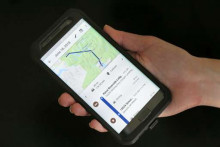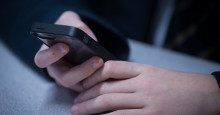Muslim American says US border agents seized her iPhone without explanation
A Muslim woman sued US Customs and Border Protection on Thursday, alleging agents confiscated and held her iPhone for more than four months without explanation after she returned to the US from Europe.
Rejhane Lazoja, a US citizen, alleges she was taken to a small room at Newark Liberty Airport after returning from Zurich, Switzerland, with her 6-year-old daughter on Feb. 26. One of two CBP agents then asked her to unlock her iPhone 6S Plus, which she refused to do because she was given no reason, the suit says.












































































